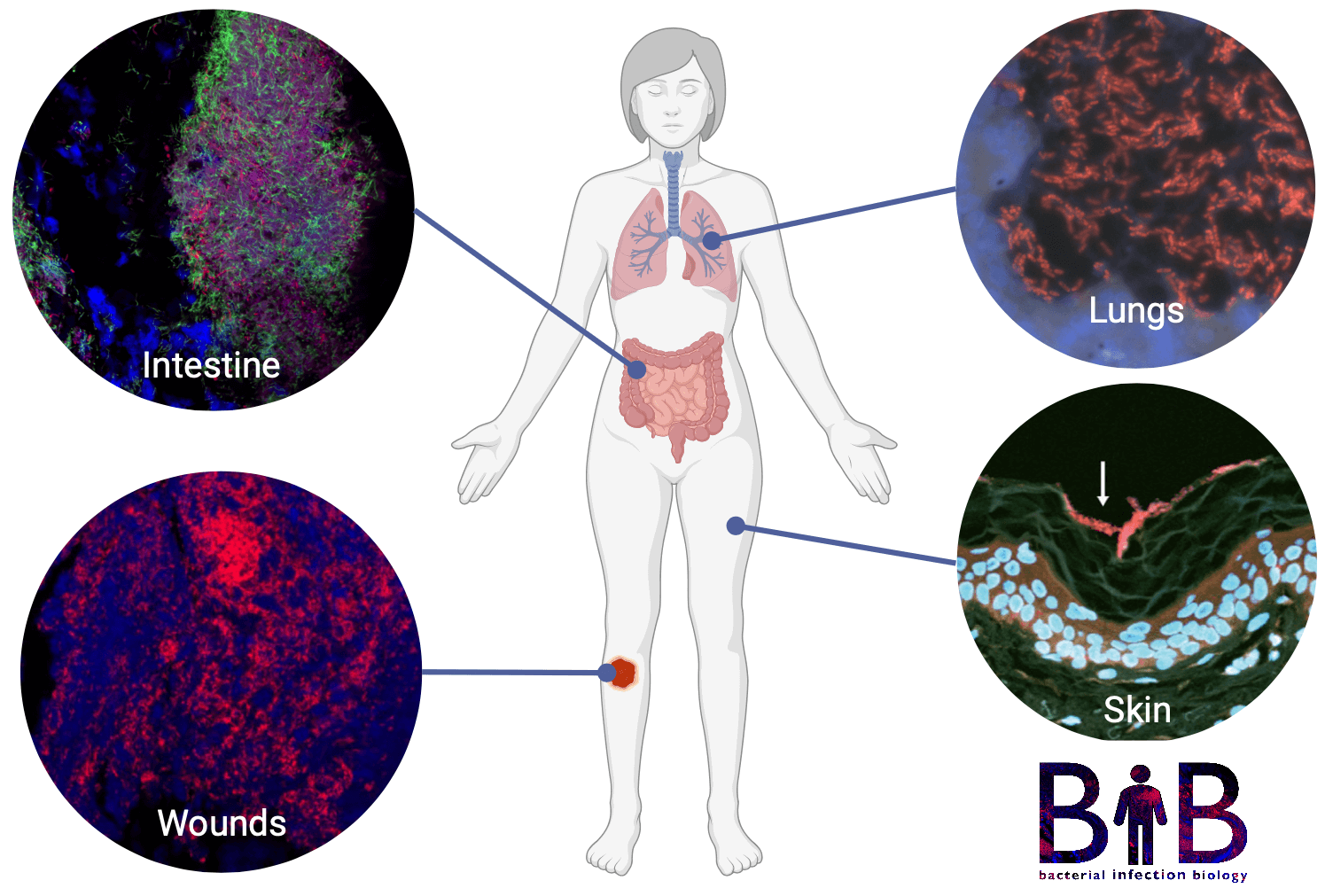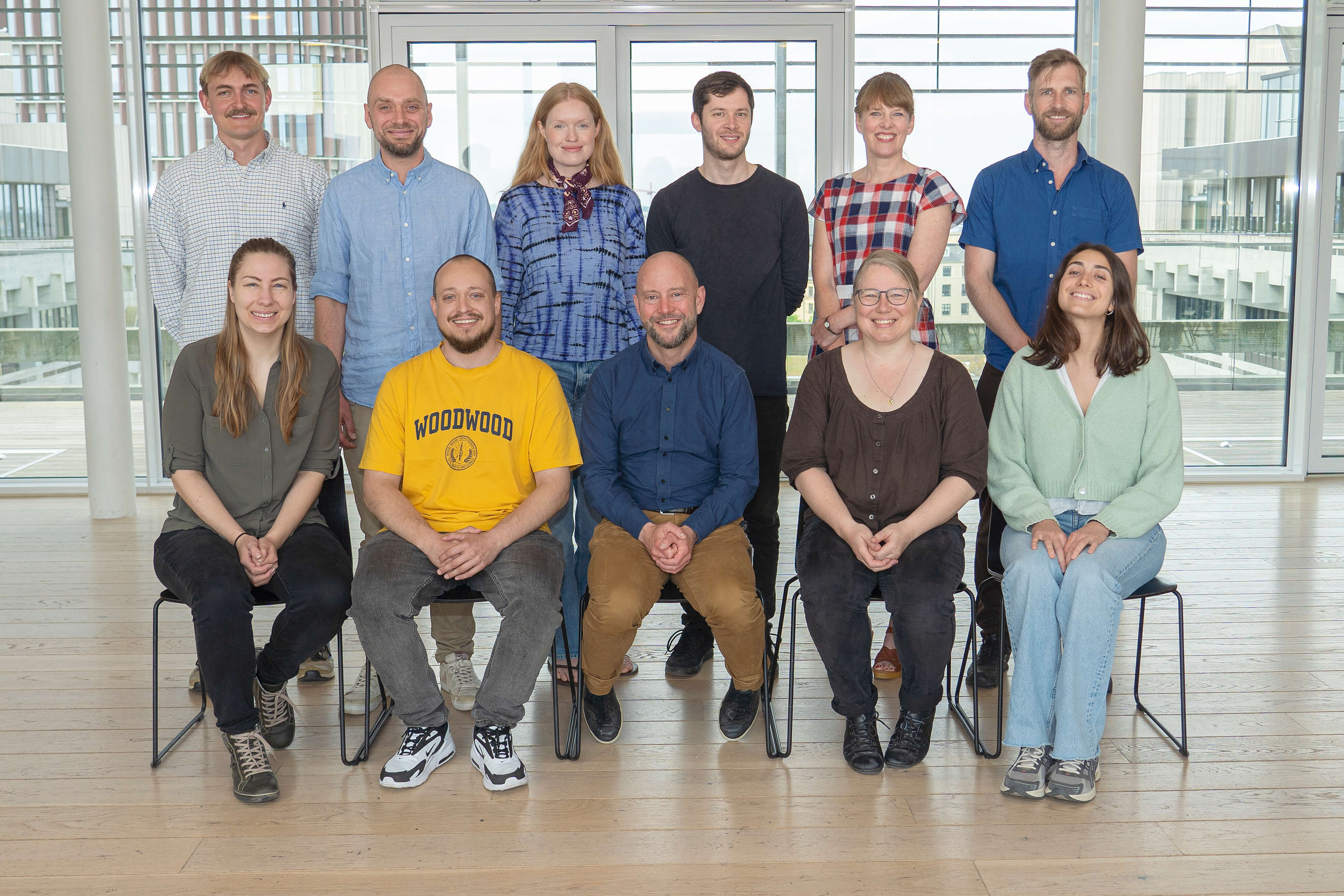Bacterial Infection Biology
The Bacterial Infection Biology group aims to understand how bacteria initiate biofilms in the human body and why the immune defense seems to fail both in the initial infection and later in the chronic infection. We integrate state-of-the-art methodologies for visualization of bacteria in tissues combined with multi-omics to produce three-dimensional molecular maps of host-pathogen interactions to predict the development of infections.

Basically, bacteria display two life forms during growth and proliferation. In one form, the bacteria appear as single, independent cells (planktonic), and in the other form bacteria are organised in sessile aggregates. The latter form is commonly referred to as the biofilm phenotype. Acute infections are assumed to involve planktonic bacteria, and are generally treatable with antibiotics, though successful treatment depends on accurate and fast diagnosis. However, in cases where the bacteria succeed in forming a biofilm within the human host, the infection often turns out to be untreatable and will develop into a chronic state.
The important hallmark of chronic, biofilm-based infections is extreme resistance to antibiotics, as well as a number of other conventional antimicrobial agents and an extreme capacity to evade the host defense. In addition, since the bacteria in chronic infections are aggregated, resistance genes can be passed from one bacterium to the other.
We study the role of bacterial and fungal biofilms in chronic infections both in vitro, animal models and ex vivo material from chronic infections. Our interests are how bacteria initiate biofilms in the human body and why the immune defense seems to fail both in the initial infection and later in the chronic infection. What is the prevalence of bacteria and fungus on implants in general? What is the activity of the microbes in chronic infections and which species are present? We also seek to develop tools and methods to enable fast diagnosis of these infections, for better treatment and possible prevention.
Key publications
- Kolpen, M., et al. (2022). "Bacterial biofilms predominate in both acute and chronic human lung infections." Thorax: doi.org/10.1136/thoraxjnl-2021-217576
- Bjarnsholt, T., et al. (2021). "The importance of understanding the infectious microenvironment." The Lancet Infectious Diseases: doi.org/10.1016/S1473-3099(21)00122-5
- Cornforth, D. M., et al. (2018). "Pseudomonas aeruginosa transcriptome during human infection." PNAS: doi.org/10.1073/pnas.1717525115
- Bjarnsholt, T., et al. (2013). "The in vivo biofilm." Trends in Microbiology: doi.org/10.1016/j.tim.2013.06.002
- LEO Fondet
- Lundbeck Fonden
- Novo Nordisk Fonden – Tandem programme
- Novo Nordisk Fonden – Challenge programme
- Direktør Emil C. Hertz og Hustru Inger Hertz Fond
- Brødrene Hartmanns Fond
- Region Sjællands Sundhedsvidenskabelige Forskningsfond (RSSF)
- SoftOx Solutions A/S
- Magle Chemoswed AB
- Statens Veterinære Myndighedsbetjening
- Frimodt-Heineke Fonden
- Mælkeafgiftsfonden
We collaborate with the major hospitals in the Capital Region (Copenhagen University Hospital, Bispebjerg and Frederiksberg hospital, Herlev and Gentofte hospital) and Region Zealand (Zealand University Hospital), with both biotech- (Symcel AB, Sweden) and medtech companies (SoftOx Solutions A/S, Norway) along with ongoing collaborations with many leading international biofilm experts.
Staff list
| Name | Title | Phone | |
|---|---|---|---|
| Bay, Lene | Assistant Professor | +4535337473 | |
| Bjarnsholt, Thomas | Professor | +4535337441 | |
| Fritz, Blaine Gabriel | Assistant Professor | ||
| Herly, Mikkel | Associate Professor | ||
| Jakobsen, Tim Holm | Associate Professor | +4535337374 | |
| Jensen, Peter Østrup | Associate Professor | ||
| Jørgensen, Elin Lisby Kastbjerg | Academic Research Staff | +4535335623 | |
| Nielsen, Anne Kirstine | Laboratory Technician | +4535326659 |

